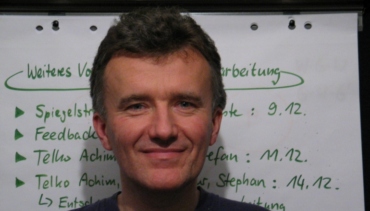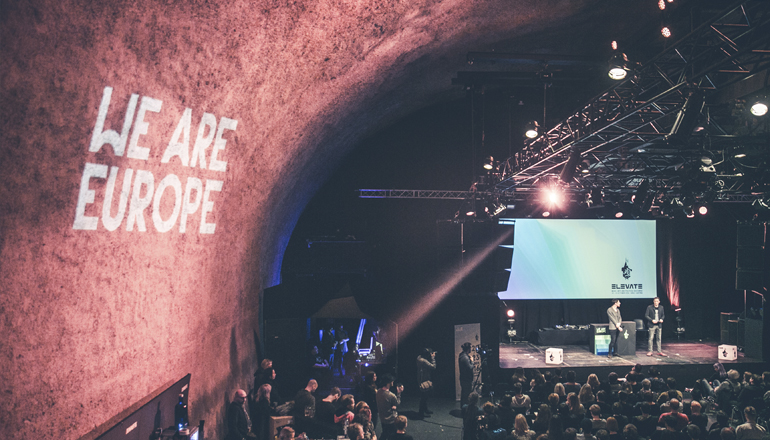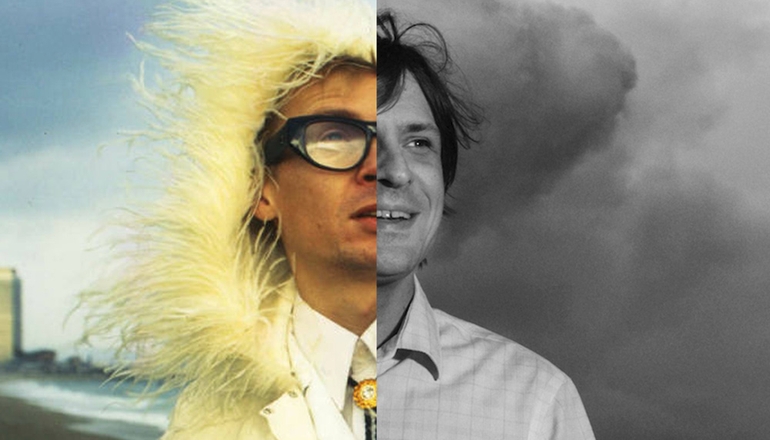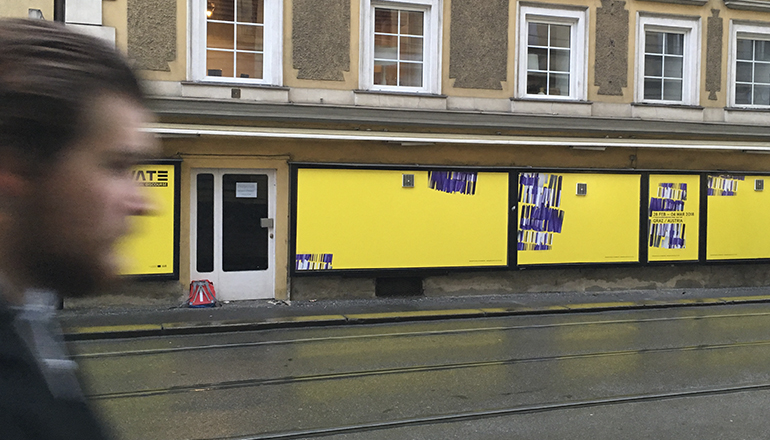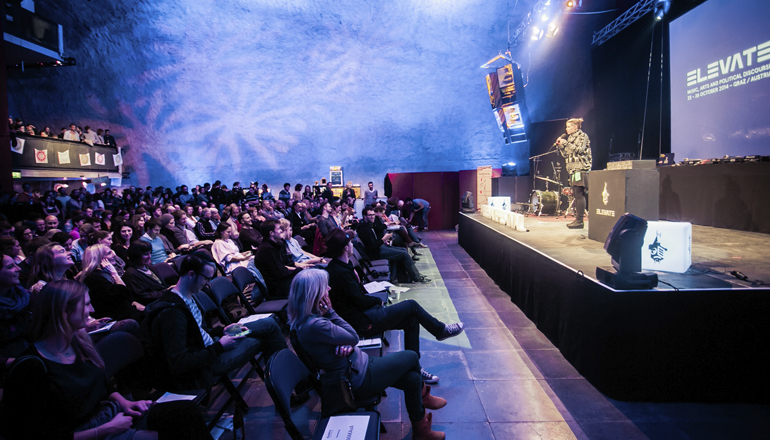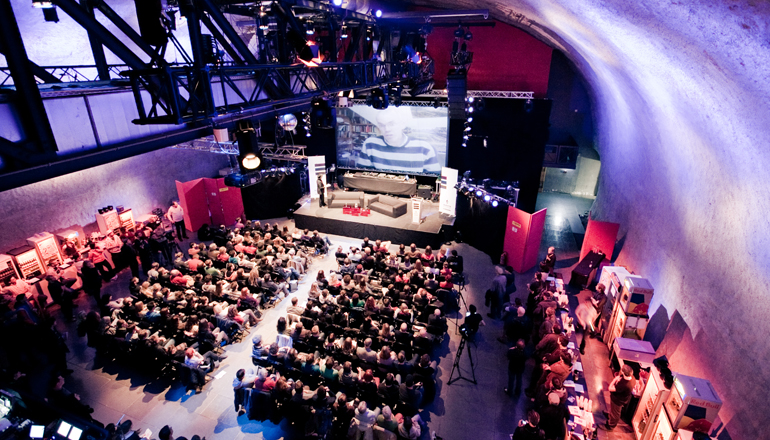Stefan Meretz strode onto the stage, eyes blazing, promising fire and brimstone. Channelling the revolutionary power of his medieval countryman, Martin Luther, Stefan proceeded to nail his iconoclastic theses to the door of the Elevate church.
Except that he was using PowerPoint. And there were only ten. And they were all in German and all about the economy of which I know nothing. But I imagine that medieval journalists in Britain had a similar problem with good old Martin Luthur and his Catholic nonsense, so I'll press on regardless.
1. Open source and openness are the result of product development forces.
Technology is collected knowledge and the development of technology amounts to the production of knowledge. How much of the car's manufacture, Stefan wonders, is thanks simply to the raw materials and how much is thanks to the generations and generations of human technical knowledge that have been required to create the car? Perhaps 5% materials and 95% technical knowledge?
The production of this knowledge demands cooperation and communication. It is a simple observable fact that open cooperation and communication beats the closed form.
2. Open source is two-faced.
Open source is pro-capitalistic. It can be used to make goods and sell them.
Open source is also commonistic. It shares resources, social processes and products.
These two contradictions operate simultaneously.
3. If you want to talk about open source, you've got to talk about capitalism.
Open source can only become big through capitalism, because capitalism pays. People need money every day and that needs to come from somewhere. People choose to work on their open source project, instead of going to work for money. They choose to make a contribution instead of an exchange. But they still need to find money from somewhere.
4. Capitalism and ecology contradict each other.
Capitalism must, by its nature, grow and we are never allowed to say, "Stop, that's enough!" because that is what we call a financial crisis. Stopping might be good for the environment, Stefan says, but it is bad for humans because of all the social problems that follow from crisis.
5. The question is not whether capitalism is going to drown, but only when and how.
The financial market is nothing more than a gigantic bet on future production, the procedes of which are fed into the economy now. At some point this cycle of gambling will break down. At some point. Did the Romans, tucked up in their togas, feel like their empire was collapsing in 476 AD?
Marxists thought that capitalism would collapse and simply disappear, so they were busy planning an alternative to capitalism. But, as we learnt from the Soviet experiment, you can't plan an economy. What might emerge from the collapse of capitalism is a different kind of group capitalism. So we can't simply let capitalism break down and expect everything to be fine afterwards.
6. Capitalism needs open source and open source promotes capitalism.
IBM have invested one billion dollars in open source software - why? This would seem to be the equivalent of taking a billion dollars out of the bank and burning it. They will never make a cent back from the free open source software they have helped to create. So why do it? Because by devaluing the software segment (incidentally dominated by their rivals Microsoft) they can sell more of their hardware. This has been a great success for IBM: openness will win in the long run.
7. If you want to understand open source, you have to understand commonism.
In capitalism, self-realisation is always done at the cost of others. Open source, however, encourages individual self-development and inclusive cooperation or commoning.
Normal copyright is exclusive: you exclude others from using what you produce. With the creative commons license used in open source, we are actively inviting others to co-create new software.
8. Commonism is not the alternative to capitalism, but describes the general way humans organise themselves.
Slavery, for example, was a very limited form of commonism in the way that it promoted human organisation and development.
And capitalism is just the way that we organise ourselves at the moment. To be sure, capitalism is a very dynamic and compelling form of commonism - but it is one that limits us because it must include the exploitation of capital and labour, where an elite benefit at the expense of others.
9. Commonism is the folding up of commonism on its own basis.
I told you I didn't understand all of it.
10. Commonism is necessarily contradictory.
Commonism must be created with awareness, in order to include more people, far from the control of the market, but also far from the control of the state. Exclusivity has to be weakened and that means no borders and no barriers.
And yet we have to work in a world full of contradictions. A world of 100% inclusivity is not possible; there will always be limits. But we must try.
The blog of David Charles: www.davidcharles.info
